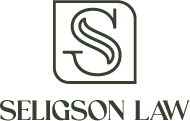New York’s cannabis market is growing fast, but the application process is complex, competitive, and highly regulated. Whether you’re a grower, manufacturer, or retail operator, getting started the right way matters.
At Seligson Law, we help cannabis entrepreneurs move confidently through each step of licensing and compliance. Led by attorney Kenneth Seligson, our legal team brings deep knowledge of New York’s cannabis laws, business formation, and regulatory frameworks. We know the stakes are high, and we’re here to make sure you’re prepared to succeed, starting with acquiring a cannabis license in New York.
Understanding New York’s Cannabis Licensing Landscape
New York legalized adult-use cannabis in 2021 through the Marijuana Regulation and Taxation Act (MRTA). The law created a licensing framework administered by the Office of Cannabis Management (OCM) and overseen by the Cannabis Control Board (CCB).
A key feature of New York’s approach is equity. At least 50% of licenses are reserved for Social and Economic Equity (SEE) applicants—including minority- and women-owned businesses, service-disabled veterans, individuals from over-policed communities, and distressed farmers.
Types of Adult-Use Cannabis Licenses in New York
New York offers multiple license types, each designed to serve a specific function in the supply chain:
- Cultivator
- Processor
- Distributor
- Retail Dispensary
- Microbusiness
- Delivery
- Nursery
- Cooperative
- On-site Consumption
Most applicants are limited to one license type to prevent vertical integration, although microbusiness licensees may be permitted to cultivate, process, distribute, and sell, on a limited scale.
Basic Eligibility Requirements
Before applying, make sure you meet these minimum requirements:
- Be at least 21 years old
- Have a significant presence in New York (e.g., residency, property ownership, or business)
- Pass a background check
- Disclose any ownership interest in other cannabis businesses
Social Equity and Conditional Licenses
If you qualify as a SEE applicant, you may be eligible for priority review, reduced fees, and technical assistance. New York’s Conditional Adult-Use Retail Dispensary (CAURD) license was specifically created for individuals impacted by past cannabis convictions.
If you’re not sure whether you qualify for social equity programs, Seligson Law can help determine your eligibility and guide you through the application process.
How to Prepare for a Cannabis License Application
License applications are released in application windows, so preparation is key. Here’s how to get ahead:
- Select your business structure (LLC, corporation, etc.)
- Secure a compliant location (must meet zoning and local opt-out laws)
- Create a thorough business plan, including workforce development and community impact
- Gather documentation, such as:
- Operating agreements
- Proof of funds
- Property control (lease, deed, or LOI)
OCM scores applications based on merit, including your financial stability and community engagement plan.
Your Location Matters
Your proposed site must comply with New York’s local regulations and zoning laws. Be sure to:
- Confirm the municipality has not opted out
- Use the OCM’s local zoning map
- Provide proof of site control
- Ensure property meets spacing requirements (e.g., distance from schools, other dispensaries)
Application Timeline and Review
New York only accepts applications during specific periods, not year-round. Once the window opens, submissions are reviewed and scored based on merit.
If your application is approved, you may need to pass a pre-operational inspection before receiving final licensure.
With experienced legal counsel, you can ensure your application is compliant, complete, and competitive.
Costs and Fees
Application and licensing fees vary by license type and SEE status. Expect:
- Non-refundable application fee
- Licensing fee (due upon approval)
- Additional startup costs, including:
- Security and insurance
- Inventory systems
- Staff onboarding
- Local permitting fees
A well-budgeted plan strengthens your application and prepares your business for a smooth launch.
Common Pitfalls and How to Avoid Them
Applicants are often delayed or denied for:
- Incomplete or incorrect applications
- Non-compliant locations
- Lack of documentation
- Ineligibility for SEE priority
Avoid these setbacks by working with a legal team that knows the process inside and out.
Statute of Limitations and Application Deadlines
While there’s no statute of limitations in the traditional legal sense, deadlines for cannabis license applications are strict. You must submit your application within the window specified by OCM, missing it could mean waiting months or years for another opportunity.
Seligson Law tracks these windows and provides real-time updates to keep clients ahead of the curve.
Start Strong with Seligson Law
Launching a cannabis business in New York is a serious undertaking, but with the right legal guidance, it’s absolutely achievable.
At Seligson Law, we walk you through every stage of the process, from structuring your business and securing your location to final license submission. We know the system. We’ve worked with businesses like yours. And we’re ready to help you do it right the first time.
Contact us today at 213-293-6692 or reach out to us at intake@seligsonlaw.com to schedule a consultation and take the next step toward building your cannabis business.
Frequently Asked Questions
1. What types of cannabis licenses are available in New York?
The state offers licenses for cultivation, processing, distribution, retail dispensaries, microbusinesses, delivery, nurseries, cooperatives, and on-site consumption. Each license serves a different role in the supply chain.
2. Who qualifies for Social and Economic Equity (SEE) programs?
SEE applicants include minority- and women-owned businesses, service-disabled veterans, distressed farmers, and individuals from communities disproportionately impacted by past cannabis laws.
3. How do I know if my location is eligible for a cannabis business?
Your site must be in a municipality that opted in, comply with zoning laws, and meet spacing requirements, such as distance from schools or houses of worship. Proof of site control is also required.
4. How long does it take to get a cannabis license in New York?
Timelines vary, but most applicants should expect several months to over a year. The process depends on application window openings, OCM review, and readiness of your site and documentation.
5. What costs are involved in getting licensed?
Applicants should budget for application and licensing fees, security systems, insurance, staffing, inventory systems, and facility buildout. Fees are higher for larger businesses but reduced for some SEE applicants.
6. Why should I hire a cannabis lawyer for the application process?
A lawyer ensures your application is accurate, complete, and compliant, while guiding you through site selection, business structuring, and community engagement to strengthen your chance of approval.





